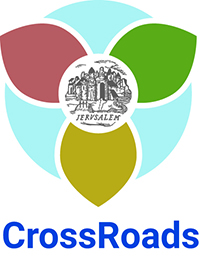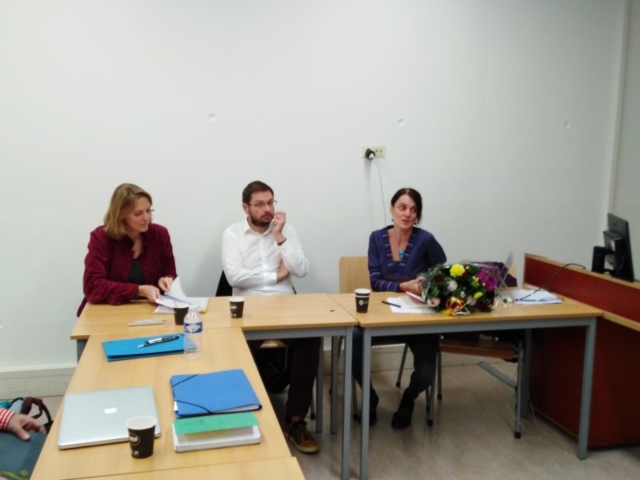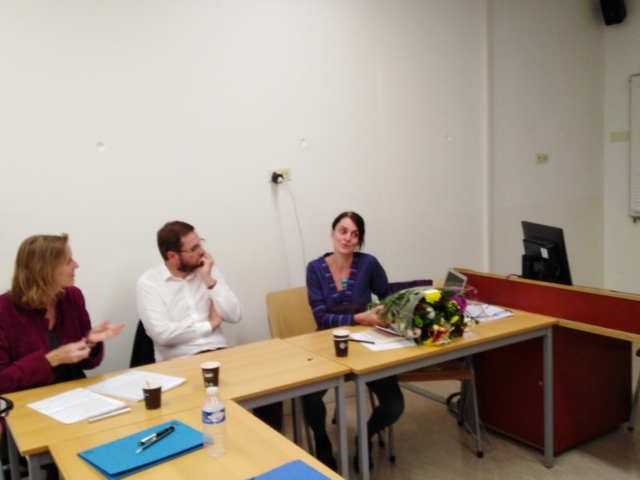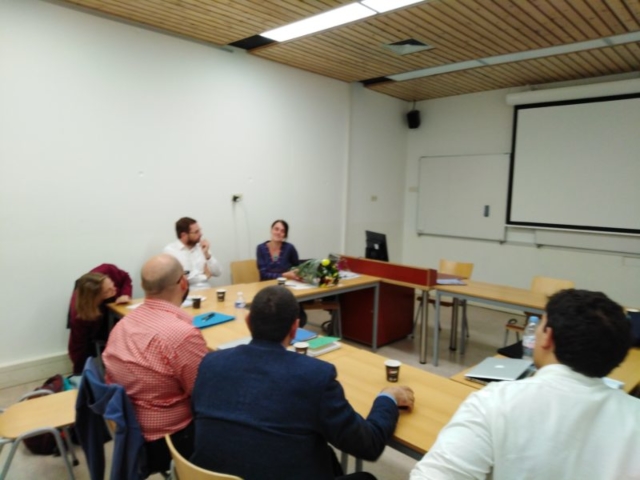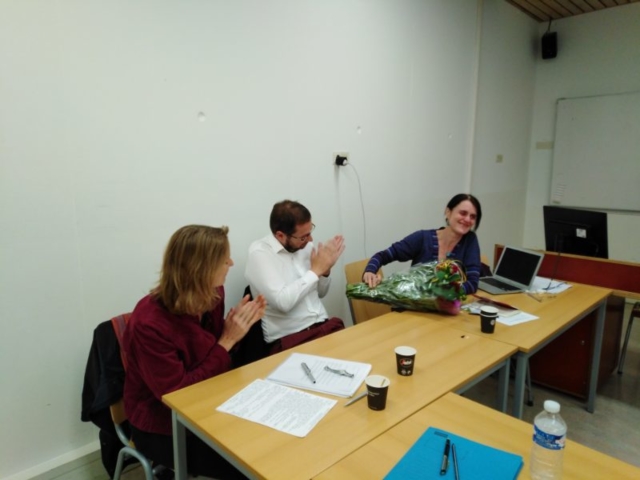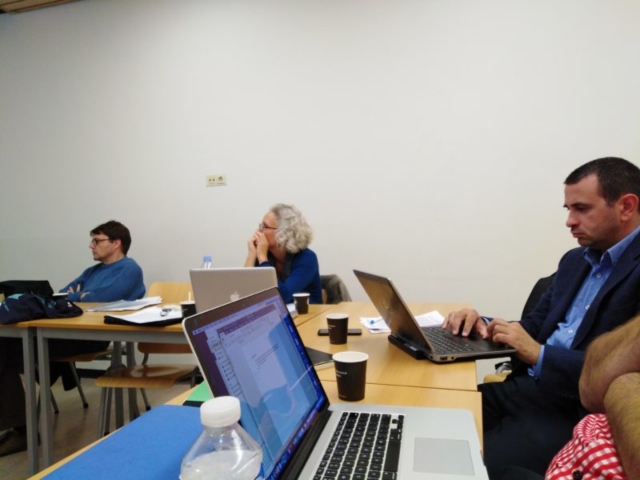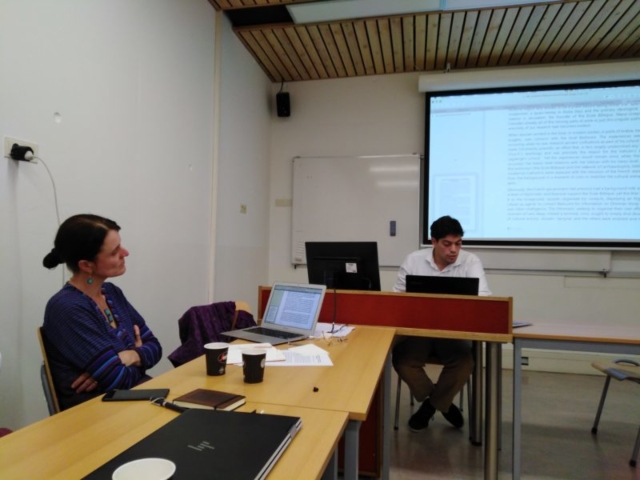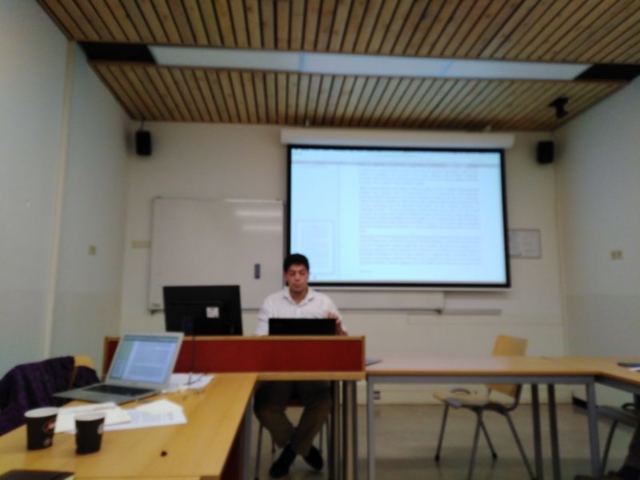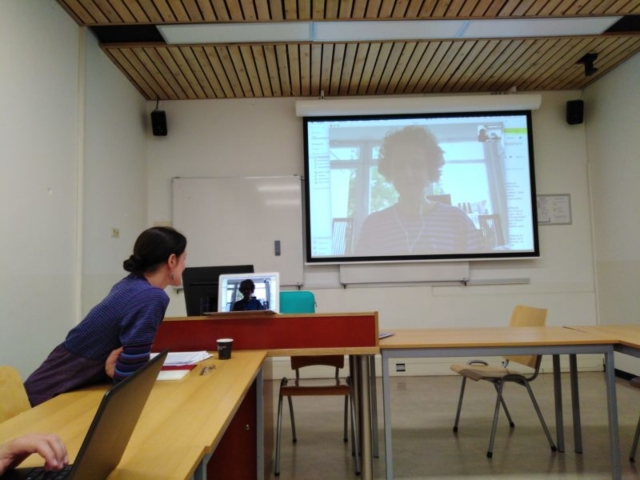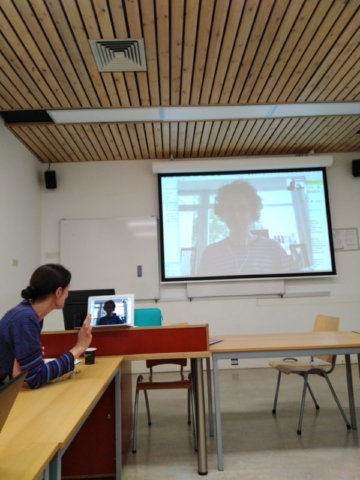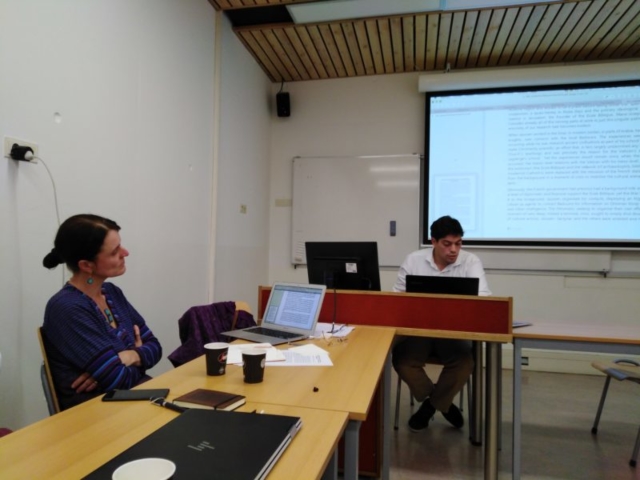Conference
13-14 September 2018
Leiden University Library, Vossius room
Workshop ‘Cultural Diplomacy revisited’ Leiden University
Project funded by NWO (The Netherlands Organisation for Scientific Research)
‘European cultural diplomacy and Arab Christians in Palestine. A connected history during the formative years of the Middle East (1918-1948)’
• Our goals for this workshop is
To introduce our project and to develop and discuss a conceptual and methodological framework for the study of cultural diplomacy that incorporates input from different scholarly fields and branches (primarily international history, diplomatic history, political science, religious history and cultural studies).
• Our tentative hypotheses
1. Mandate authorities addressed Muslim and Jewish communities (via legal frameworks, proto-national agenda, sectarian policies) but not Christian communities, leaving them somewhat apart. One result was that they over-proportionally invested in culture as a cornerstone of their identity.
2. Palestine was a nexus of cultural milieus (European actors and Jewish immigrants). Their culture played a major role in the construction of the Jewish nation and this process impacted the Arab Christian communities’ sense of ‘cultural promotion’.
3. Following WWI, international relations were becoming inexorably linked to political ideology and rivalry between European states took on a cultural component.
4. Supranational religious actors (Vatican, Orthodox Patriarchates) promoted diverse linguistic and cultural agendas by investing in cultural associations.
These hypotheses will be answered via a close study of the three main actors: the two most numerous indigenous Christian populations, the Orthodox and the Melkite (Greek Catholic), and the European cultural actors. Practices and perceptions of culture of both Orthodox Christians and Melkites changed drastically during the Mandate. Many cultural clubs appeared at the beginning of the 1920s (literary, athletic, political commiXees), shifting towards more communal cultural associations in the 1930s. At the same time, different European countries used culture as a tool of influence in the Arab world.
To understand the contested role of culture during the formative years of the Middle East, the project intends to analyze the cultural practices and ideas of both local communities and their communal and religious leaders (foreign and local), and their interactions with European cultural actors (cultural, regional and global perspective). These can be traced in the archives of associations, private archives, the programs of educational institutes, local/regional journals, pamphlets and books, and in church archives, governmental educational establishments and private cultural institutions, nuanced by the comparative analysis of British and Zionist archives. The dynamics of personal and institutional interactions will be complemented via a comparative analysis of the cultural agenda of their Jewish and Muslim compatriots.
• Bibliography
I. Ang, Y.Raj Isar & P. Mar (2015) ‘Cultural diplomacy: beyond the national interest?’,International Journal of Cultural Policy, 21:4, 365-381.
P. Burke, What is a cultural history?(Cambridge, Polity Press 2004)
D. Clarke, ‘Theorising the role of cultural products in cultural diplomacy from a Cultural Studies perspective’, International Journal of Cultural Policy 22/2 (2014) 1-17.
Jennifer Dueck, The Claims of Culture at Empire’s End: Syria and Lebanon under French Rule (Oxford: Oxford University Press/British Academy, 2010).
C.E. Gienow-Hecht and Mark C. Donfried (eds), Searching for Cultural diplomacy (Berghan books, 2010)
L. Kozma, C. Schayegh, A. Wishniler, A Global Middle East: Mobility, Materiality and Culture in the Modern Age, 1880-1940 (IB Tauris, 2015)
G. Paschalidis, ‘Exporting national culture: histories of Cultural Institutes abroad’, International Journal of Cultural Policy 15/3 (2009) 275-289.
J. Vaughan, ‘A Certain Idea of Britain’: British Cultural Diplomacy in the Middle East, 1945–57, Contemporary British History, 19:2 (2005) 151-168.
• Historiography & preliminary ideas
The last decade has seen a rise in the number of studies on the Christians of the Middle East.
The Mandate was a special form of colonialism (Arsan and Schayeh 2015) that challenged the indigenous Christian communities; their overlapping cultural identities, cultural dynamism, and their cultural networks (with Europe, diaspora, transnational organisations) have not yet been explored, in part due to the inaccessibility of the local archives.
Much of the research on cultural diplomacy focused on the US (premise: cultural diplomacy as a key instrument of foreign policy/ containment of USSR). Joseph Nye had a fundamental influence with his definition of ‘soft power’. More recently, Akira Iriye, in his seminal study on cultural internationalism, argued that after WWI, international relations gained a cultural dimension. New interest for what would now be called ‘soft power’ (Nye 2004, Melissen 2005) justified studies about cultural and linguistic policies in the history of international relations (Chaubet, 2006; Van Kessel 2016). Yet, research on the contemporary history of cultural foreign policy remains scarce for the Levant (Frijhoff & Sanchez 2016). European cultural policies and their appropriation by the Arabs of Palestine have not been thoroughly studied. None of the historical studies of institutions like the British Council (Donaldson 1984, Smith 2017) and the Alliance Française (Chaubet 2013), addressed how these organizations functioned alongside each other, their conception of culture and the goals they promoted. Research of the German influence concentrated on the pre-Mandate period (Goren 2009). Recently, the ‘national culture’ being defined through an international context has been questioned (van Kessel 2016).
European cultural conceptions, agendas and their appropriation are fundamental in order to understand the challenges of the Arabisation process (and the definitions of Arab identities), the instrumentalisation of the protection of minorities, and to reassess conflicts through culture.
Practices and perceptions of culture of both Orthodox Christians and Melkites changed drastically during the Mandate. Many cultural clubs appeared at the beginning of the 1920s (literary, athletic, political commiXees), shifting towards more communal cultural associations in the 1930s. At the same time, different European countries used culture as a tool of influence in the Arab world.
To understand the contested role of culture during the formative years of the Middle East, the project intend to analyze the cultural practices and ideas of both local communities and their communal and religious leaders (foreign and local), and their interactions with European cultural actors (cultural, regional and global perspective). It intend to shed light on modes of interaction, first between Arab Christians and other social groups in Palestine and with the European actors, but also between the local, regional, and transnational spheres, instead of studying a mere aggregation of communal and institutional histories. It will consider the polycentric processes for both Christian communities and the various ways in which Arab Christians located themselves in these broader cultural processes.
• Questions that we hope to discuss and answer during the workshop
General questions (goal is to define cultural diplomacy, trace its inherent strategy, and stress its multiple dimensions) :
– How were notions such as ‘national culture’ and ‘international cultural exchange’ understood by European states at the turn of the last century and how did they envision the role that cultural diplomacy could and should play in this process?
– How did European states organize and employ cultural diplomacy and what did European states wish to achieve through the implementation of this tactic or strategy on both the short-term and the long-term?
– Which agents contributed to the establishment of cultural agency as a process and which agents were eventually (intentionally or not) affected by it?
– Did European states fashion cultural diplomacy within a formal or a rather more informal (political, cultural and economic) field?
Question related to cultural diplomacy in Palestine:
– What role did culture play in the policies of European agents (both governmental and nongovernmental) regarding the Arabs of Palestine?
– How did Arab Christian communities in Palestine use cultural enterprises to define their place in the proto-national and religion configuration between 1920 and 1950?
– What was the cultural and ideological framework that European representatives used when they promoted their cultural and linguistic practices in Palestine?
– How did European representatives contribute to the initiation or opposition to sectarianism in Palestine?
– How did Arab Christian communities use the European cultural agenda(s) in order to promote and safeguard their national and communal affiliations and interests?
